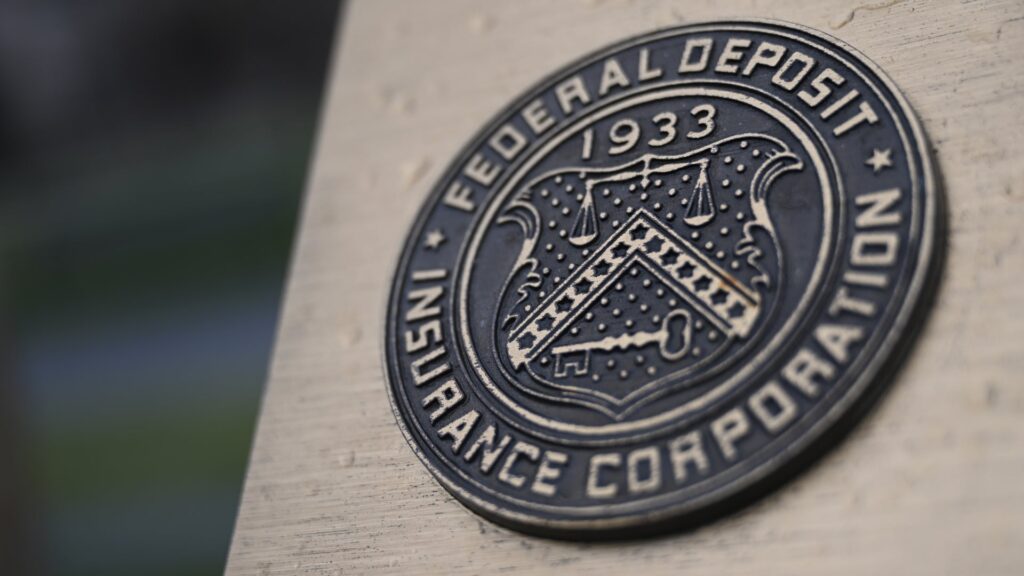Investing in Robinhood has become increasingly popular, especially among younger investors. As you venture into the world of investment, it’s crucial to understand how your money is protected. One question that often arises is, “is Robin Hood FDIC insured?” Knowing the ins and outs of Robinhood’s insurance coverage can help you make informed decisions and protect your hard-earned cash.
In this blog post, we will guide you through the differences between FDIC and SIPC insurance, Robinhood’s insurance coverage for cash management and brokerage accounts, the risks and protections for cryptocurrency investments, and how Robinhood’s coverage compares to other brokerage firms. We’ll also share tips on how to safeguard your investments on the platform. So, let’s get started on this journey to financial security!
Related Article: Is Robinhood Gold Worth It? A Comprehensive Guide For 2023
Key Takeaways
Robinhood provides FDIC and SIPC insurance coverage for its cash management and brokerage accounts, up to $1.25 million in the case of FDIC protection.
Other brokerages offer higher levels of FDIC and SIPC protection than Robinhood, with Fidelity providing up to $3 million in FDIC coverage per customer.
Investors should consider diversification strategies, emergency funds considerations, and comprehensive research when protecting investments on Robinhood.
Understanding FDIC and SIPC Insurance
FDIC and SIPC insurance significantly contribute to the protection of your investments. They serve as a safety net for investors, providing coverage and protection in case of bank failures or brokerage firm collapses. But what are the key differences between these two types of insurance, and how do they apply to your Robinhood accounts?
To clarify these points, we need to examine each type of insurance and how Robinhood integrates them to protect your investments.
FDIC Insurance Explained

FDIC insurance, also known as FDIC coverage, is provided by the Federal Deposit Insurance Corporation (FDIC). It was first established in 1933. It covers up to $250,000 per depositor in the event of a bank failure, ensuring that your money insured is safe and sound. This type of insurance is applicable to Robinhood’s cash management feature, where your uninvested funds are held in FDIC-insured partner banks.
This coverage applies to a variety of accounts, including:
Checking
Savings
Money market deposit accounts (MMDAs)
Certificates of deposit (CDs)
Thus, with the Robinhood FIDC insurance for your cash management account, you can rest assured that your funds are protected.
SIPC Insurance Explained
In contrast, the Securities Investor Protection Corporation (SIPC) provides insurance that protects up to $500,000 in securities and cash, with a $250,000 limit for cash. SIPC insurance is designed to protect investors in case a brokerage firm faces financial difficulties or malfeasance. However, it’s important to note that SIPC coverage does not protect against losses in investment value.
Robinhood is a member of SIPC, which means that your brokerage account is protected up to the aforementioned limits. With Robinhood SIPC insured, this coverage ensures that your investments in stocks, bonds, and other securities are safeguarded even in the face of unforeseen circumstances.
Robinhood’s Insurance Coverage
Having explained FDIC and SIPC insurance, we can now examine in greater detail how Robinhood uses these protections for its cash management and brokerage accounts. By employing a combination of FDIC insurance for cash management accounts and SIPC insurance for brokerage accounts, Robinhood ensures the safety of your investments.
But there’s more to the story. Robinhood goes above and beyond by offering additional “excess of SIPC” coverage. We will look at the details of Robinhood’s insurance coverage for cash management and brokerage accounts.
Related Article: How To Close A Robinhood Account In 2023: A Comprehensive Guide
FDIC Insurance for Robinhood Cash Management
Robinhood Cash Management provides FDIC insurance coverage up to $1.25 million through multiple partner banks. This means that your cash in the cash management account is split among these partner banks, ensuring maximum coverage. On the other hand, Robinhood Spending Account customers are eligible for coverage up to $250,000.
Remember, it’s the responsibility of the customer to make sure the total deposit amount doesn’t exceed the FDIC insurance limit. By keeping track of your deposits, you can make sure your funds are always protected.
SIPC Protection for Robinhood Brokerage Accounts
Robinhood brokerage accounts enjoy the protection of SIPC insurance up to $500,000, with a $250,000 limit for cash. This coverage is triggered in the event of malfeasance by Robinhood or if the company faces financial instability, providing a safety net for your investments.
On top of the standard SIPC coverage, Robinhood offers additional “excess of SIPC” coverage, which provides up to $1.5 million more for cash and $10 million more for securities protection per customer. This extra layer of protection comes into play when SIPC coverage is exhausted, ensuring that your investments are well-guarded.
Cryptocurrency Investments and Robinhood

Cryptocurrency investments have gained significant traction in recent years, and Robinhood has embraced this trend by allowing users to trade various cryptocurrencies such as Bitcoin, Ethereum, and Dogecoin without any commission fees. Yet, understanding the risks and safeguards related to cryptocurrency investments on the platform is important.
As cryptocurrencies are not classified as securities, they are not covered by SIPC insurance. So, what protections does Robinhood have in place for your digital assets? We’ll now examine this.
Lack of SIPC Coverage for Cryptocurrencies
Since cryptocurrencies are not considered securities, they are not eligible for SIPC coverage on Robinhood. This lack of coverage exposes investors to potential market value loss and a lack of protection or limited insurance.
However, Robinhood takes several measures to ensure the security of cryptocurrencies in the absence of SIPC insurance. These measures include employing data security protocols such as AES encryption, TLS, and two-factor authentication (2FA). Additionally, Robinhood stores the majority of cryptocurrencies in offline storage, also known as cold storage, to protect them from potential online threats.
Crime Insurance for Digital Assets
To further safeguard your digital assets, Robinhood provides crime insurance for its cryptocurrencies. This insurance covers a portion of the assets held in Robinhood’s custody system against losses due to theft and cybersecurity breaches, ensuring that your investments are protected even in the absence of SIPC coverage.
While Robinhood’s crime insurance offers a layer of protection for your digital assets, the exact coverage amount is undisclosed. Being aware of the limitations and risks linked to cryptocurrency investments is significant and taking measures to protect your investments is necessary.
Comparing Robinhood’s Insurance Coverage with Other Brokerages
Understanding how Robinhood’s insurance coverage compares to other brokerage firms can assist you in making wise choices when selecting a platform for your investments. While Robinhood offers FDIC insurance for cash management accounts and SIPC insurance for brokerage accounts, is it on par with other brokerages in the industry?
We’ll compare the insurance coverage of Robinhood with other brokerage firms, considering both FDIC protection for cash deposits and SIPC protection for investment accounts, while also taking into account the guidelines set by the Financial Industry Regulatory Authority.
FDIC Protection for Other Brokerage Firms
Other brokerage firms may offer varying levels of FDIC protection for cash deposits, depending on their specific policies and partnerships with banks. While Robinhood provides FDIC insurance coverage up to $1.25 million through partner banks for its cash management accounts, other firms like Fidelity and Vanguard have even higher levels of FDIC protection.
It’s important to understand that FDIC insurance only applies to cash deposits in bank accounts and not investment accounts. For investment accounts, brokerage firms usually provide SIPC coverage, which we’ll discuss in the next subsection.
SIPC Protection for Other Brokerage Firms
SIPC protection is standard across brokerage firms, including Robinhood, with coverage limits of up to $500,000 in securities and cash (with a limit of $250,000 for cash). However, the excess coverage provided by some brokerage firms may vary. For example, Fidelity, Vanguard, Webull and Interactive Brokers all offer higher SIPC coverage than Robinhood.
Grasping the differences in insurance coverage between Robinhood and other brokerage firms can guide brokerage customers in making wise decisions on where to place their funds and how to optimally secure their investments.
Tips for Protecting Your Investments on Robinhood
Having examined Robinhood’s insurance coverage and its comparison with other brokerages, we can now talk about strategies to secure your investments on the platform. By following these tips, you can minimize risks and ensure that your hard-earned money is well-protected.
We’ll examine the following topics:
Diversification strategies
Considerations for an emergency fund
The importance of conducting comprehensive research and due diligence prior to making investment decisions on Robinhood.
Diversification Strategies
One of the most effective ways to minimize risk and optimize potential returns is to diversify your portfolio. Here are some options for creating a diversified portfolio that meets your investment objectives:
Investing in a variety of asset classes
Employing aggressive investing strategies
Utilizing asset allocation or target date funds
Personalizing your portfolio with individual stocks and bonds
A diversified Robinhood portfolio can incorporate a range of securities, including stocks, bonds, and cash. Regularly reviewing your portfolio and rebalancing it as needed is crucial for maintaining a healthy and diversified investment strategy.
Emergency Fund Considerations

Having an emergency fund separate from your investments is crucial for ensuring financial stability and proper financial planning. An emergency fund provides a financial cushion in case of unforeseen expenses or emergencies, allowing you to access liquid cash without having to divest from your investments.
A widely accepted practice is to maintain three to six months worth of expenses in an emergency fund when investing in Robinhood. The ideal size of your emergency fund may vary depending on your individual circumstances and risk tolerance, so it’s important to consider your monthly expenses and financial objectives when determining the appropriate size.
Research and Due Diligence
Prior to making any investment decisions on Robinhood, conducting comprehensive research and due diligence is necessary. This includes:
Analyzing the company’s outlook and holdings
Reading professional research reports
Conducting your own research
Utilizing investing resources
Robinhood offers several resources for research and due diligence, such as educational articles and guides on finance and investing, as well as features to help users make sound financial decisions. By leveraging these resources and carefully researching potential investments, you can make informed decisions that align with your financial goals.
Summary
In conclusion, understanding Robinhood’s insurance coverage and how it compares to other brokerage firms is essential for protecting your investments. By taking advantage of FDIC and SIPC insurance, diversifying your portfolio, maintaining an emergency fund, and conducting thorough research, you can minimize risks and ensure the security of your hard-earned money. Armed with this knowledge, you’re well-equipped to invest confidently and build a strong financial future.
Frequently Asked Questions
Is my money safe in a Robinhood account?
Your money is safe in a Robinhood account, as it is protected by the Securities Investor Protection Corporation (SIPC) up to $500,000. Cash held by the broker is also insured up to $250,000.
How do I get my money back from Robinhood?
To get your money back from Robinhood, click “Account” in the top-right corner, then select “Transfer to your bank” or “Transfer to your debit card,” enter the amount you’d like to withdraw, and confirm the details before clicking “Transfer.”
Is Robinhood FDIC insured?
Robinhood’s cash management accounts are FDIC insured, but regular brokerage accounts are not.
Are cryptocurrencies on Robinhood protected by SIPC insurance?
No, cryptocurrencies are not protected by SIPC insurance on Robinhood as they are not classified as securities.




